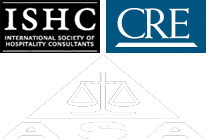Should You Litigate, Mediate or Arbitrate Your Hotel Franchise Agreements?
By : admin | Category : Hotel Management & Franchise Agreements | No Comments
4th Feb 2014
 With any franchise agreement, there should be a clause on how a dispute between the parties is going to be handled. The three most popular ways to resolve a disagreement relating to a franchise agreement is through arbitration, mediation or litigation. There are advantages and disadvantages to each approach, and which one you use is usually a matter of whatever is stated in the franchise agreement.
With any franchise agreement, there should be a clause on how a dispute between the parties is going to be handled. The three most popular ways to resolve a disagreement relating to a franchise agreement is through arbitration, mediation or litigation. There are advantages and disadvantages to each approach, and which one you use is usually a matter of whatever is stated in the franchise agreement.
1. Arbitration
Arbitration is a form of alternative dispute resolution where the parties agree to have the dispute heard before one or more arbitrators, or someone, similar to a judge, who decides the outcome. While similar to traditional litigation in that a third party decides the outcome, the parties have more control over the process. They choose and pay the arbitrator; can choose to keep the proceedings private; and can decide whether the arbitration will be binding on the parties or not. One of the main disadvantages is that usually binding arbitration decisions are not appealable, meaning if one party believes an order is reached in error, there is little that can be done. The advantages are arbitration is typically faster and less expensive than litigation.
2. Mediation
With mediation, the parties sit down together with a mediator and come up with a settlement in their dispute together. A mediator does not make the decision for the parties (as in arbitration), but instead offers objective and neutral guidance through the process in order to help the parties come up with an agreement on their own. Like with arbitration, the parties can agree to keep the proceedings confidential, and most likely will share the costs of the mediator. One disadvantage of mediation is that if the dispute is especially heated, or one party is especially stubborn, it can be difficult to come up with any sort of compromise, which forces the parties into arbitration or litigation anyway.
3. Litigation
Litigation is the traditional route for settling a dispute in many franchise agreements. In litigation, a case is brought before the court, and after discovery, a trial is held, and the judge decides the outcome. There are advantages and disadvantages to litigation, same as with any other form of dispute resolution. On one hand, litigation can be time consuming and costly. On the other, a decision will be made in the case, even if it isn’t one that is mutually advantageous. Also, when a case is litigated, the parties have the chance to appeal, something that doesn’t exist in arbitration.
Archives
Categories
Recent Posts
- Help with Due Diligence with Hotel Development Consulting in California
- How a Non-Lawyer Hotel and Real Estate Arbitrator in California Helps
- Valuation Methods from Hotel and Real Estate Appraisals in California
- What Has Your Resort Development Expert in California Done for You Lately?
- Essential Elements of Hotel Concession Contracts in California



